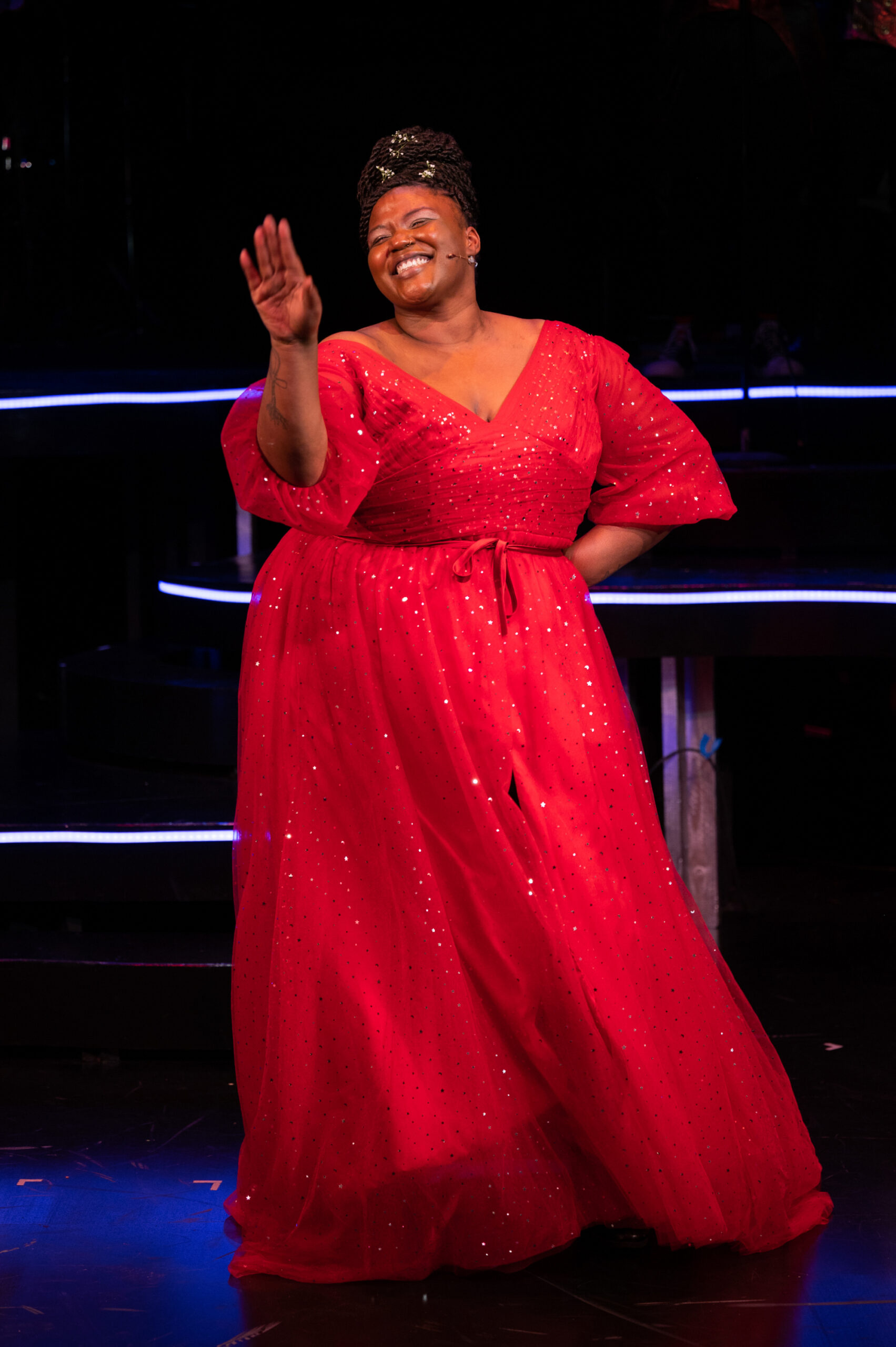
The young man in “Passing Strange” has to get out of here. He can’t be himself around his mother’s clucking and normie, middle-class ways, or his church’s “Baptist fashion show,” or his adolescent punk band, with their fiery performance but lukewarm commitment and worse musicianship.
Yes, the wider world — in this case, Europe and its sex, drugs and rock ‘n’ roll — calls, and the Youth (Devin Cunningham) has to answer, as all children eventually must. And yet leaving the nest does not on its own make him a man or an artist, this Tony Award-winning musical by the mononymous Stew and Heidi Rodewald suggests. Nor does it neatly resolve his American Blackness. On another continent, with its death metal concerts and art house cinema, its bohemian collectives, its cafes packed with flâneurs and philosophers, the Youth can neither shed his race nor tokenize it for short-term, queasy-making gain.

Now in a gorgeous, liberating and heartbreaking Shotgun Players production that opened Saturday, March 12, “Passing Strange” offers nothing less than a vision of what it is to be human. The Youth might protest to Mother (Rolanda D. Bell) that he didn’t choose to be different, didn’t choose to have offbeat artistic dreams that don’t fit in sunny, bourgeois Los Angeles. But neither did he choose homestead, history, race, family, identity. He must acknowledge, accommodate and reckon with all parts of himself if he is to be whole — and he doesn’t have a lifetime to figure that out at his leisure. Eventually, time runs out and forces his hand.
Director William Hodgson tells this tale with compassion and insight. He gives each beat, each discovery, each song the perfect amount of breath, which shows profound and refreshing trust in the script and the audience. Emotional peaks — when the Youth tells off his church choir director (Shakur Tolliver), when the Youth’s European lovers (Angel Adedokun, Chanel Tilghman) confront him for his hypocrisies — have the space to settle and then ripple outward.

Music Director Daniel Alley makes the probing, inventive, rock-driven score into a joyous, call-and-response, theater-wide party. Alley and his three bandmates so relish their playing as to frequently dissolve the fourth wall.
Each member of the seven-person cast excels, and Jasmine Milan Williams’ costume design extends the song they sing, making an adolescent crush all the swishier, in her ruffly skirts, or highlighting Amsterdam as a primary-color dreamland.
Tolliver压抑合唱团导演和a steampunk Berlin artist who speaks as a squall’s last gasps, has that electric superpower that makes everything on stage feel a little bit dangerous. Writhing like a serpent on the floor or regally toking in a powder-blue Volkswagen, he doesn’t just make choices; he seizes them, and you’re in their grip, too.

As the Narrator, looking back with rue and mortification and empathy on his younger self, often from a platform a tier or two above the rest of the ensemble, Albert Hodge strikes just the right persona. He’s a little bit flinty, a little bit of an instigator; it’s almost as if he’s stuck ringleading the circus of his youth as some kind of eternal purgatory. But for all the resignation and sagacity he projects, he still has the capacity to be surprised by his younger self.
Then there’s Bell, whose Mother is a quiet revelation, the product of a born performer who doesn’t need to amp up to command the stage. Watch as the color drains from her face when she’s on a long-distance call with her son in Berlin, fathoming just how much more than geography separates them. Something else has left her body, something you’d swear was tangible, as if she made a shadow figure materialize and walk off the stage, leaving her behind.

In “Passing Strange,” the artist can’t just toil away at the composition notebook, converting the muse into notes and lyrics, as some crank-operated machine. He can’t just absorb cool experiences as grist for the mill and debate Marx and Hegel with European babes. His responsibilities must also be more earthbound, more prosaic. Otherwise, he is not of us, and his art can’t touch us — as “Passing Strange” so indelibly does.
N“Passing Strange”:Book and lyrics by Stew. Music by Stew and Heidi Rodewald. Created in collaboration with Annie Dorsen. Directed by William Hodgson. Through April 10. Two hours, 40 minutes. $7-$40. Ashby Stage, 1901 Ashby Ave., Berkeley. 510-841-6500.shotgunplayers.org
